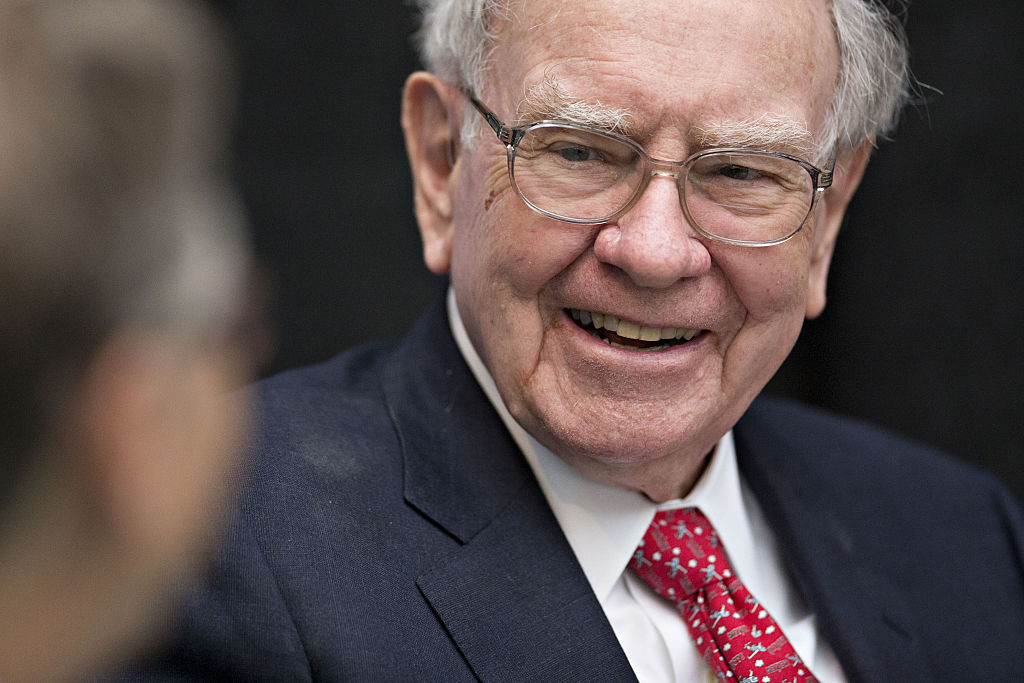Get the latest financial news, insights and expert analysis from our award-winning MoneyWeek team, to help you understand what really matters when it comes to your finances.
You are now subscribed
Your newsletter sign-up was successful
Want to add more newsletters?

Twice daily
MoneyWeek
Get the latest financial news, insights and expert analysis from our award-winning MoneyWeek team, to help you understand what really matters when it comes to your finances.

Four times a week
Look After My Bills
Sign up to our free money-saving newsletter, filled with the latest news and expert advice to help you find the best tips and deals for managing your bills. Start saving today!

Francisco Garca Params studied economics at the Complutense University of Madrid and completed an MBA at the University of Navarra before joining fund manager Bestinver in 1989. There, he became Spain's most-successful fund manager, delivering annual returns of 16% over 25 years. His record became so important to the firm that its assets under management dropped by 30% when he left in 2014. After a two-year non-compete period expired, he launched his own firm, Cobas Asset Management, in 2017.
What is his strategy?
Params follows the value-investing principles of stock-trading legends such as Benjamin Graham and Warren Buffett. As with Buffett, Params' style has evolved to favour higher-quality firms. "When you're young you want to achieve a quick, high return and you think you can get it with cheap companies, so you avoid quality companies that are more expensive," he told CityWire. "Over time you realise these cheap companies are cheap because they are regular businesses and things can go wrong."
What was his best trade?
At Bestinver, Params' funds often held a stock for a long period of time, but regularly added to or trimmed the size of each investment depending on which holdings seemed cheapest. This makes it difficult to identify how much specific stocks have contributed to his performance. However, when launching Cobas in 2017 he noted that he had seen (and presumably acted on) an "extraordinary opportunity" in miner Anglo American in late 2015, when the shares were trading at roughly 270p. By March 2017, they had recovered to 1,400p.
MoneyWeek
Subscribe to MoneyWeek today and get your first six magazine issues absolutely FREE

Sign up to Money Morning
Don't miss the latest investment and personal finances news, market analysis, plus money-saving tips with our free twice-daily newsletter
Don't miss the latest investment and personal finances news, market analysis, plus money-saving tips with our free twice-daily newsletter
What can investors learn?
In his book Investing for the Long Term (to be published in English this year), Params sets out a number of pithy principles, including "the more a company appears in the press, the further you should keep away from it" and "the older a company is, the more possibilities it has of surviving". He strongly favours family-controlled firms such as BMW, which has been one of his longest-held investments.
Get the latest financial news, insights and expert analysis from our award-winning MoneyWeek team, to help you understand what really matters when it comes to your finances.

-
 Should you buy an active ETF?
Should you buy an active ETF?ETFs are often mischaracterised as passive products, but they can be a convenient way to add active management to your portfolio
-
 Power up your pension before 5 April – easy ways to save before the tax year end
Power up your pension before 5 April – easy ways to save before the tax year endWith the end of the tax year looming, pension savers currently have a window to review and maximise what’s going into their retirement funds – we look at how
-
 The Stella Show is still on the road – can Stella Li keep it that way?
The Stella Show is still on the road – can Stella Li keep it that way?Stella Li is the globe-trotting ambassador for Chinese electric-car company BYD, which has grown into a world leader. Can she keep the motor running?
-
 How to beat Warren Buffett – and the fund and trusts that have managed it
How to beat Warren Buffett – and the fund and trusts that have managed itWarren Buffett has achieved stellar returns for investors over a long and illustrious career. Can you rival his investment performance?
-
 Fractional shares: what are they and why HMRC is worried?
Fractional shares: what are they and why HMRC is worried?Investors who have flocked to investment apps offering fractional shares in an Isa could lose the tax-free status of their portfolios.
-
 8 ways to profit from Japan’s recovery
8 ways to profit from Japan’s recoveryCorporate reform, normalising monetary policy and cheap valuations make Japanese equities a top long-term bet, says Alex Rankine.
-
 What is Bernard Arnault's net worth?
What is Bernard Arnault's net worth?We look into Bernard Arnault's net worth – how did he make his billions?
-
 Power your portfolio with the profits of China’s electric-vehicle makers
Power your portfolio with the profits of China’s electric-vehicle makersOpinion A professional investor tells us where he’d put his money. This week: Ewan Markson-Brown of the CRUX Asia ex-Japan Fund highlights three favourites.
-
 Top investment ideas for 2023: silver, tech and drugs
Top investment ideas for 2023: silver, tech and drugsAdvice Our writers’ top investment ideas for 2023 include a cybersecurity stock, bitcoin and a psychedelic treatment for depression.
-
 Why we need a little patience
Why we need a little patienceAdvertisement Feature In volatile markets it’s easy to get spooked and sell your investments. But that could cost you many thousands of pounds. A patient approach can be much more rewarding.
